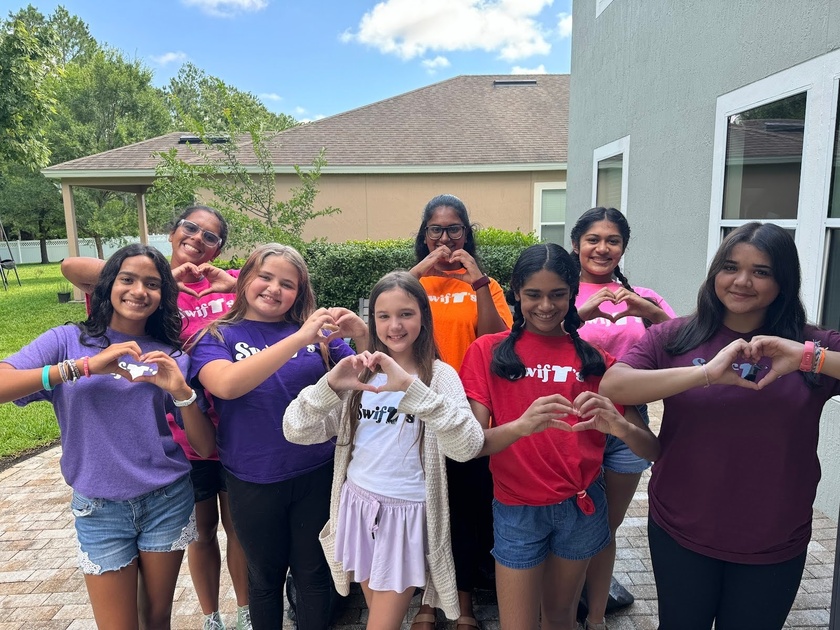
Swif-Tees, a burgeoning t-shirt brand based in Saint Johns, Florida, is making waves in the fashion industry with its unique blend of artistry and individuality. What began as a local artist collective showcasing their talent at community events has transformed into a nationally recognized name, with offerings available through their dedicated website, swif-tees.com, and on global platforms like eBay. This is the story of how Swif-Tees captured the hearts of shoppers seeking bold, creative, and meaningful apparel.
Humble Origins in Saint Johns
Nestled in the vibrant community of Saint Johns, Swif-Tees first found its footing at local art fairs and gatherings. Founder Marta Guerra, along with a passionate team of independent artists, used these events to share their vision of wearable art. The team’s collaborative approach ensured that each t-shirt became a unique canvas, reflecting the diverse creativity of its creators.
“Our community embraced us from the start,” Marta recalls. “Saint Johns is full of people who value originality and craftsmanship, and their support gave us the confidence to grow.”
The Leap to E-Commerce
As word of their striking designs spread, Swif-Tees recognized the need to expand beyond local events. Their foray into e-commerce began with the launch of their eBay store, where customers could browse and purchase their collections. This move opened doors to a broader audience and established Swif-Tees as a player in the online retail space.
The team also launched their website, swif-tees.com, which serves as the central hub for their growing product line. Offering a seamless shopping experience, the site highlights their English and Spanish collections, catering to a diverse audience. Swif-Tees' commitment to accessibility ensures that art lovers from all walks of life can find something that resonates with them.
Embracing Individuality Through Design
Swif-Tees' t-shirts stand out for their bold designs and thoughtful artistry. Each piece is created by the collective, resulting in an eclectic mix of styles that appeal to a wide range of tastes. From vibrant abstracts to intricate line art, the brand celebrates diversity and individuality.
“Our designs are more than just graphics on a shirt,” says Marta. “They’re stories, emotions, and expressions. We want people to feel a connection when they wear our pieces.”
This philosophy has struck a chord with customers who value unique apparel. Reviews on their eBay store highlight the quality of the materials, the originality of the designs, and the emotional connection customers feel to the brand.
Connecting with Customers Nationwide
Swif-Tees’ expansion into e-commerce has allowed them to reach customers far beyond Saint Johns. Their eBay store has become a hotspot for shoppers looking for limited-edition apparel that stands out in a crowd. The brand’s strong social media presence also plays a vital role in engaging with their audience.
By sharing behind-the-scenes content, artist profiles, and styling tips on platforms like Instagram and Facebook, Swif-Tees fosters a sense of community among their customers. Fans frequently share photos of themselves wearing Swif-Tees apparel, creating a ripple effect that amplifies the brand’s visibility.
Building a Legacy in Sustainable Fashion
As Swif-Tees grows, so does their commitment to ethical and sustainable practices. The team is exploring eco-friendly materials and packaging options to minimize their environmental footprint. This dedication to sustainability aligns with their broader mission of creating meaningful products that make a positive impact.
“We want our customers to feel good about their purchase—not just because they love the design, but because they know they’re supporting something that aligns with their values,” Marta explains.
A Vision for the Future
Looking ahead, Swif-Tees has ambitious plans. The collective aims to expand its product line, possibly venturing into other forms of wearable art like hoodies, hats, and tote bags. Collaborations with other independent artists and collectives are also on the horizon, promising fresh and exciting additions to their catalog.
Marta and her team also hope to host workshops and events that celebrate the intersection of art and fashion, further solidifying their role as a hub for creativity.
How to Support Swif-Tees
Whether you’re a longtime supporter or new to the brand, Swif-Tees offers plenty of ways to join their journey. Browse their latest collections at swif-tees.com or visit their eBay store to discover one-of-a-kind designs. For updates, inspiration, and a peek into their creative process, follow them on Instagram and Facebook.
Swif-Tees is more than just a t-shirt company—it’s a celebration of creativity, community, and individuality. By staying true to their roots while embracing innovation, Marta Guerra and her team have created a brand that resonates with people across the nation. Whether you’re drawn to their bold designs or inspired by their story, Swif-Tees invites you to wear your individuality with pride.



















